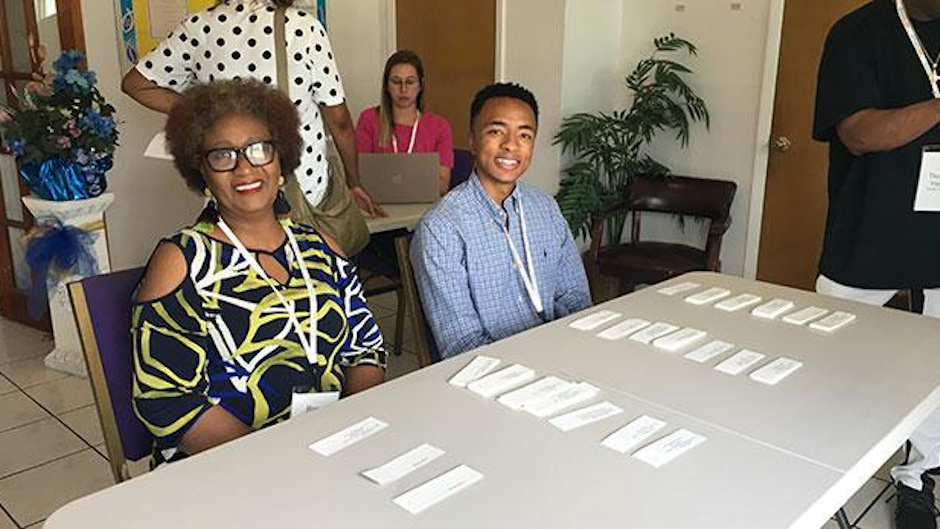Over 300 plaintiffs have signed on to a class action lawsuit suing the City of Fort Myers and its mayor and city manager. When the city indicated that it was open to mediating the claims contained in the suit, clinic students from Miami Law's Environmental Justice Clinic faced the challenge of determining how to incorporate meaningful community input into the mediation process. As part of the clinic’s seminar class, the students covered how to advocate for a client who extends beyond the individual into an entire community and how to incorporate community empowerment through the litigation process. For the clients in Fort Myers, EJC students were not merely discussing community lawyering as a theory but were applying its principles first-hand.
Working together with community leaders, EJC students made this a reality. They decided to hold a community workshop the weekend before mediation was set to take place to assess what the community would want to see from the city in order to end the litigation. EJC students designed the workshop with small breakout groups so that everyone had an opportunity to speak and provide input. The breakout groups were led by community representatives to ensure that the discussion remained within the community.
“Many times within class action litigation the voices of those represented are not heard and take little or no part in the litigation," EJC fellow Abigail Fleming said. "Community meetings are an excellent way to bring class members together, not only to gather data but to allow them to have a voice; it is especially essential in a community like Dunbar, an African American community in one of the most segregated cities in the country.”
After the small groups, the larger group gathered together where a representative from each group reported back to all the participants, presenting the ideas from each of the breakout groups and compiling a list of outcomes that the community would like to see from mediation. With the entire list finished, everyone was given two stickers to put next to what they believed were the two most desired results. The proposed items were then discussed as a group. The discussions highlighted areas where individuals disagreed, but more importantly, they also stressed where the community was united and spoke with one voice.
“One remarkable point of consensus,” said EJC Acting Director Natalie Barefoot, “was that the community would like to see a memorial placed on the site after it has been remediated. The request has nothing to do with monetary gains or punishing the city, but rather to honor those in the community who were taken from them sooner than they should have been because of the toxic dump.”
Almost 100 community members participated, some driving from as far away as Georgia for the workshop. EJC intern Alex Meyer said, "seeing the Dunbar community come together and assert their voices through the community meeting was inspiring and truly helped to motivate and focus our work.”
“During the Dunbar pre-mediation meeting, the community members voiced their concerns," said Fleming. "They worked together, as communities should, to come up with solutions. It gave the community a voice, but also power.”
The EJC took the recommendations to the mediation the following weekend and conveyed them to the defendants throughout the process. Whether the city will take on any of the community’s demands remains to be seen, as settlement negotiations are ongoing, but there is value in the fact that the community – which for decades has been discriminated against and neglected by its governing leaders – came together and raised its voice. “It made our work feel even more important to see that the community was not going to give in to the city without a fight,” said EJC intern Daren Hooper.
The case involves a site in the middle of the historic African-American community of Dunbar where the City of Fort Myers had dumped arsenic-contaminated sludge and maintained the open dump for decades. Supported by the EJC, along with outside counsel, North Carolina-based firm Davis & Whitlock and individual attorney, Ralf Brookes, the plaintiffs filed suit claiming violations of environmental law (the Resource Conservation and Recovery Act) and tort law. The Dunbar community is demanding that the City of Fort Myers remediate the dumpsite, award damages for their violations of tort law, and establish a medical monitoring program to assist the community now facing a heightened risk of contracting diseases related to exposure to the contamination.
More information on the Environmental Justice Clinic.

